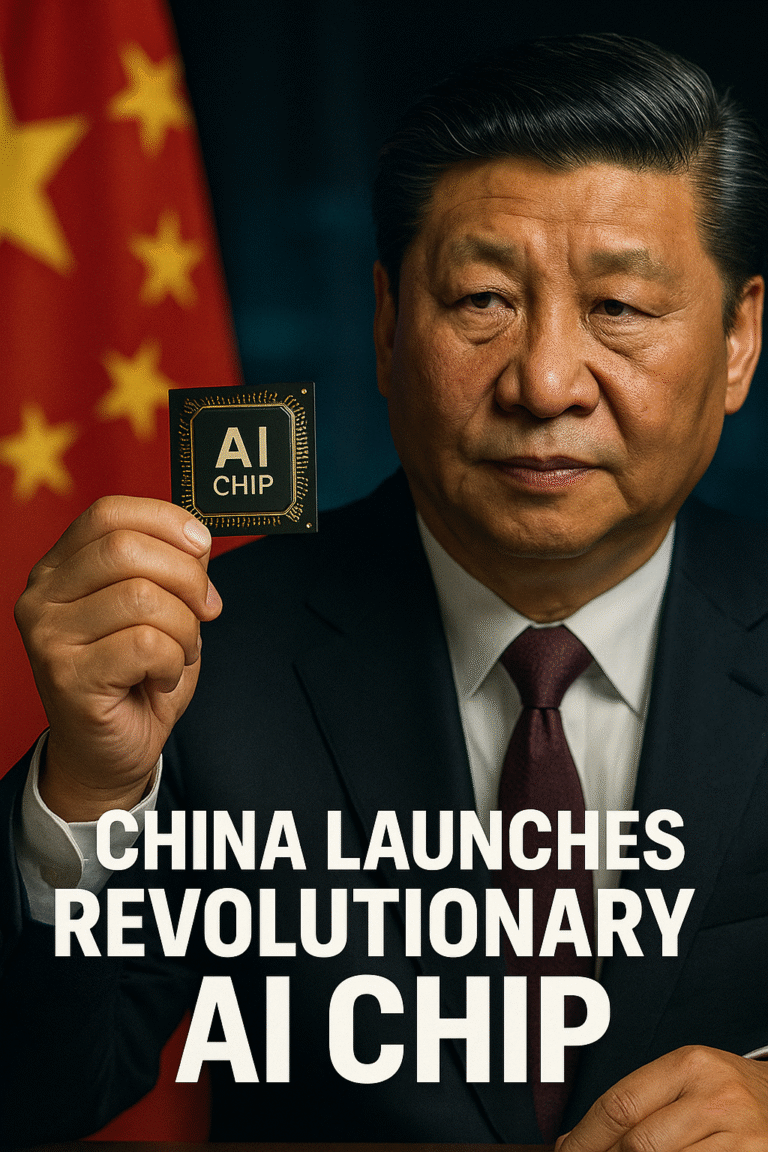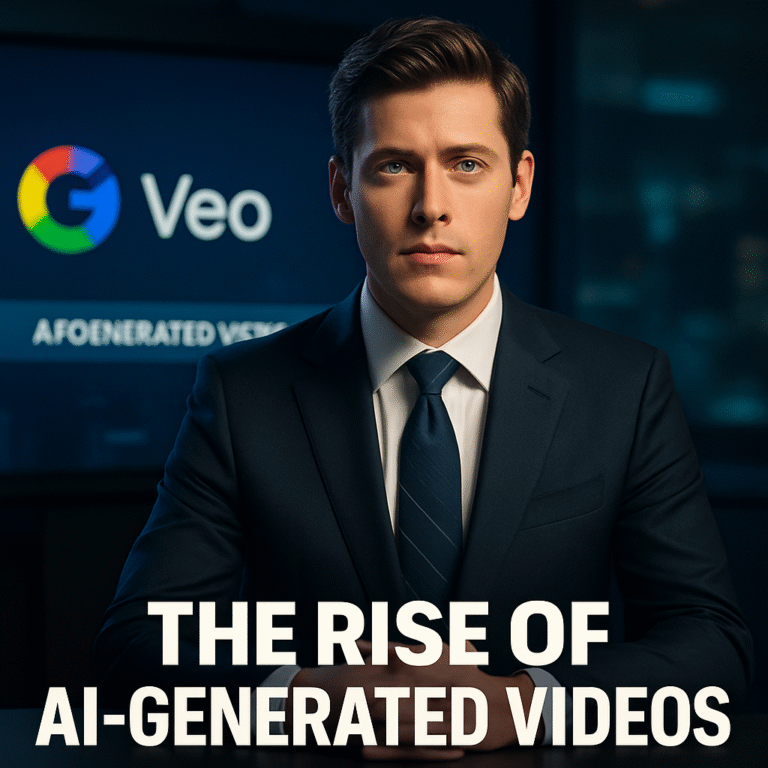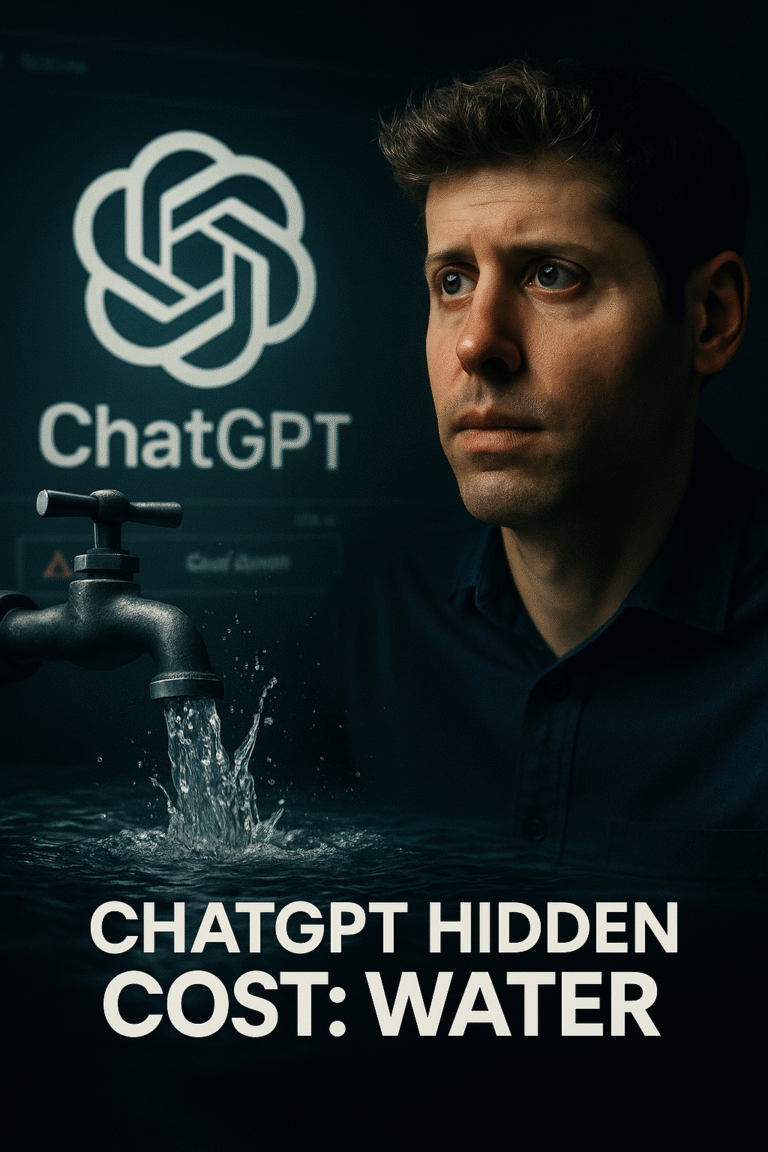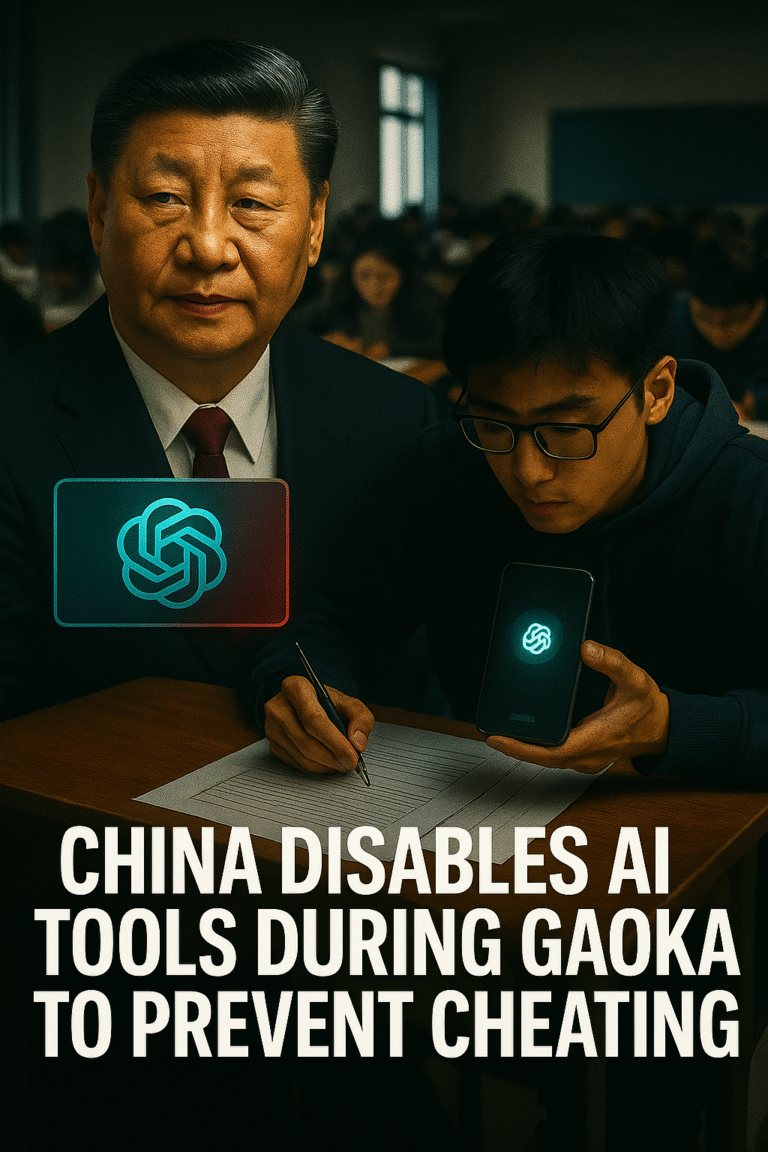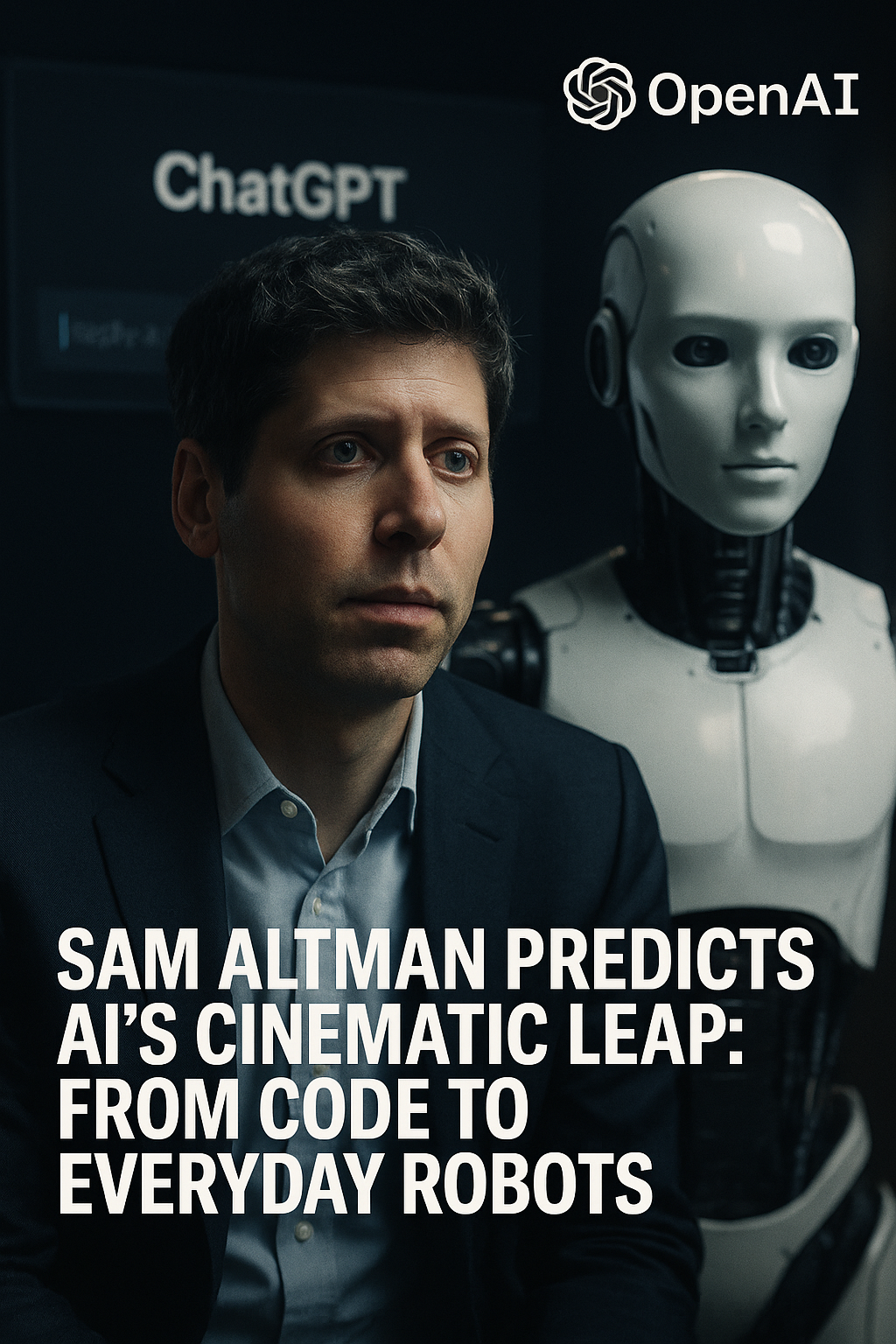
Artificial Intelligence (AI) is no longer something just from science fiction stories. According to Sam Altman, CEO of OpenAI (the company behind ChatGPT), AI is getting smarter fast — and by 2026, it will be able to solve really hard problems that usually need expert human brains. Let’s break down what this means in simple terms: What kind of problems will AI help with? Why is this important? How will it change the way we live and work? And what can you do to get ready?
Whether you’re a curious student, a working adult, or someone who just wants to keep up with the future, this article will help you understand what’s coming — and how exciting it really is.
Let’s dive in.
📌 Keywords You’ll See:
- AI Agents
- OpenAI
- Sam Altman
- Complex Problems
- Future of Work
- Human-AI Collaboration
- 2026
🧠 Let’s make it simple so anyone — even an 8th grader — can follow.
🚀 Sam Altman’s Big Prediction for AI by 2026
Sam Altman believes that by 2026 (just around the corner), AI agents — advanced computer programs — will be able to:
✅ Plan and finish tough, multistep tasks on their own
✅ Work in new situations and adjust when things change
✅ Team up with humans and other AI systems
✅ Make smart choices using real-world facts
That’s like having a really smart assistant who can understand your goals and help you solve tough problems — not just do simple things like answer questions or schedule meetings.
As Altman says:
“AI agents will go beyond simple chatbots and become real helpers in solving hard problems — not just assistants, but actual problem solvers.”
That’s a big deal.
🧩 What Are “Complex Problems” Anyway?
Let’s say you have a messy situation where it’s not easy to find a simple answer. That’s a complex problem. These usually involve:
- Many parts working together
- Choices that affect the future
- Special knowledge in many areas
- Important results if you get it wrong
- Not enough clear information
Examples of complex problems are:
- Creating a better transportation system for a whole city
- Figuring out rare diseases in medicine
- Making smart choices in investing money
- Helping countries talk instead of fighting
- Fixing supply chains during global disasters
AI that can help with problems like these would change how we think, work, and live.
And that kind of change is coming fast.
🛠️ What’s Making This Possible?
Three big things are helping AI get ready to solve big problems:
1. Smarter Language Models (Like ChatGPT)
Tools like ChatGPT already help people write, brainstorm, and solve problems. Soon, these tools will do more:
- Remember long-term goals
- Use other tools (like spreadsheets or maps)
- Think step-by-step
They won’t just be chatbots — they’ll be like virtual teammates who can do research, write reports, solve technical tasks, and more.
2. Better, Focused Data
AI learns from data — tons of it. The more good data it has, the more accurate and helpful it gets.
Now, companies and governments are starting to give AI access to special data, like:
- Energy usage patterns
- Patient health records (safely and privately)
- Traffic systems
This helps build AI agents that are good at solving problems in specific areas (like medicine or transportation).
3. AI That Learns from People (Human Feedback)
AI gets better when humans guide it. This is called Reinforcement Learning with Human Feedback (or RLHF).
AI learns by trying, getting feedback from people, and trying again. Over time, it gets smarter and more helpful.
The result? AI that works more like a helpful teammate — and less like a machine.
👩💻 Humans + AI Working Together: Better Than Either Alone
AI isn’t here to steal jobs — it’s here to make jobs better. Think of AI as a powerful assistant that helps you do your best work.
Here are a few ways humans and AI can work together:
- Engineers use AI to test designs quickly.
- Doctors ask AI for second opinions.
- Writers brainstorm story ideas with AI co-writers.
- Startups use AI to come up with business plans.
You can do more, faster, and better. And everyone from big companies to solo workers can benefit.
🔑 Key Point: The future isn’t people vs. AI — it’s people and AI working as a team.
💼 The Future of Work — What Will Change by 2026?
As AI agents become more helpful, the way we work will change — fast. Here’s how:
New Kinds of Jobs
Instead of doing the same tasks every day, people will do more creative and thoughtful work.
We’ll need more:
🔹 Generalists — who can ask smart questions
🔹 Prompt Engineers — people who give AI good instructions
🔹 Strategic Thinkers — who use AI to make big decisions
🔹 Ethics Experts — who make sure AI is used fairly and safely
So don’t worry if machines are doing some jobs. The human touch will still matter — especially creativity, values, and judgment.
New Skills to Learn
To get ready for the future, we’ll all need to grow our skills. That doesn’t mean getting a whole new degree — just learning the basics of working with AI.
You’ll want to know how to:
✅ Use AI tools in your job
✅ Talk to AI with clear prompts
✅ Double-check AI answers
✅ Think critically and spot mistakes
We may soon see schools, companies, and training apps offering online classes in “AI teamwork.”
More Entrepreneurs and Startups
With a smart AI agent, one person can do the job of a whole team. You can:
- Build a product
- Market and sell it
- Manage customers
- Use data to improve
That means more people will start businesses. It’s like having a business partner who never sleeps.
Sam Altman says AI can help “level the playing field” — giving small teams the same power that only big companies used to have.
⚖️ What About Ethics? Keeping AI Safe and Fair
AI is powerful — but with power comes responsibility.
There are big questions we’ll need to answer:
- If an AI makes a mistake, who is responsible?
- Can we trust the data that trained the AI?
- How do we know the AI is being fair to everyone?
That’s why OpenAI and other companies are working on:
✅ Rules and safety checks
✅ Tools to track how AI makes decisions
✅ Including people from all backgrounds in AI design
AI should help all people — not just a few. That’s the goal.
✅ What Can You Do to Get Ready?
The future is coming fast. But you can start preparing right now. Here’s how:
🔹 Stay Informed — Follow OpenAI and thinkers like Sam Altman
🔹 Try AI Tools — Use ChatGPT to help with writing, learning, or planning
🔹 Upskill — Learn how to work with AI agents and give great prompts
🔹 Join the Discussion — Share your thoughts on how AI can help your community
You don’t need to be a tech genius. You just need curiosity and a willingness to grow.
And guess what? You’re already doing that by reading this.
🌅 Conclusion: A Smarter Future Is Around the Corner
Sam Altman’s prediction isn’t far off — by 2026, AI agents will go from helpful tools to smart partners solving some of the world’s hardest problems.
From healthcare and science, to business and education — AI will transform how we work and live.
But here’s the exciting part: humans are still at the center of it all. With smart people guiding smart machines, we can build a future that’s more creative, fair, and full of possibilities.
So whether you’re a student, a parent, or a professional — don’t wait for the future to happen.
Start exploring. Start learning. Start creating.
Because this isn’t just the AI era. It’s your era, too.
—
👉 Want to see what an AI agent can already do? Try out tools like ChatGPT today — and imagine what’s possible when you and AI work together.
The future is now. And it’s waiting for you.

